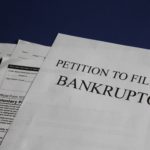There are many misconceptions about paying off credit card debt. In this guide, you will learn different ways how to pay off credit card debt.
How to Pay Off Credit Card Debt
It may seem impossible to pay off credit card debt if you owe a sizable amount. Fortunately, there are ways to find relief without stressing yourself out.
The Debt Snowball Method
This strategy is effective if you want to accelerate your debt repayment efforts. Here’s how it works:
- Step 1: Make the minimum payment on all your credit cards.
- Step 2: Allocate any extra funds from your budget to the credit card with the lowest balance each month until you pay the balance in full.
- Step 3: Repeat this process until all your credit card balances are at zero.
You can also adopt the debt avalanche method, prioritizing debts with higher balances or the highest interest rates. And if any of your credit cards have past-due balances, bring them current first before deciding on an approach to prevent further damage to your credit score.
Prioritize Your Expenses
If you want your repayment efforts to be successful, you need a debt-payoff fund. Start by reviewing your budget and identifying expenses you can cut or reduce to free up funds. Don’t have a budget? Now’s the perfect time to create one as a debt-payoff fund will allow you to execute the repayment strategy you select successfully.
Find Extra Income
Do you have other streams of income you can create? Consider doing so and using the earnings to pay off your credit card debt faster. You can pick up a part-time job, work overtime at work or put your creative talents to good use. Or you can use any financial windfalls you receive, like an income tax return or bonus from work, to reduce your credit card debt balances.
Build Up Your Emergency Fund
While this suggestion technically isn’t a way to pay off credit cards faster, it’s a must if you want to avoid working backward. Simply put, you need money in an emergency fund to cover unexpected expenses. Otherwise, you may have to use credit cards you’ve worked so hard to pay off if a financial emergency arises.
Consolidate Your Credit Card Debt
Consumers with good or excellent credit can use a debt consolidation loan to pay off credit cards faster. If approved, pay off your credit cards with the loan proceeds, and be sure to make the loan payments on time every month. Assuming the interest rate on the loan is much lower than your credit card APRs, you’ll eliminate the debt faster and save on interest.
There are other options, like balance transfer cards with a zero-APR promotional period. When you open the card, transfer balances from credit cards with high interest rates to the new card and pay it in full before the promotional period ends. You can save hundreds if not thousands using this approach, but you should avoid using the cards you pay off for it to be effective.
Get Professional Help
Are you struggling to stay afloat financially and drowning in credit card debt? You can seek help from professional debt settlement companies. These companies could help you negotiate and settle your debt with creditors for a fraction of what you owe.
Debt settlement can have negative consequences for your credit. However, you won’t have to stress about credit card debt forever if you commit and follow through with the debt settlement program until the end.
6 Myths About Paying Off Credit Card Debt
Below are six common credit card debt payoff myths.
1. You should only make payments on one credit card at a time.
When paying down credit card debt, make at least the minimum payment on all your credit cards each month before allocating any extra funds to the account you want to pay off first. It may be tempting to only focus on one credit card at a time, but ignoring the others will trigger late fees and could hurt your credit score.
2. You can pay off the balance quickly by only making the minimum payments each month.
You’re only required to make the minimum payment on your credit cards each month to keep them in good standing. However, taking this approach means you could remain in credit card debt for months or years to come.
To illustrate, if you have a credit card with a $1,000 balance, an 18.9% interest rate, and a $40 monthly payment, it will take 71 months to pay off the balance. You will also pay $511.35 in interest. If you increase your monthly payment to $80, you will shave the repayment period down to 39 months and only pay $222.11 in interest.
So, pay more than the minimum amount each month to speed off the repayment process and save on interest.
3. Debt settlement won’t impact your credit score.
When you settle your debt, your account will be updated as “settled” instead of “paid in full” on your credit report. This could negatively impact your credit rating and remain on your credit report for seven years because the creditor agreed to take less than what was owed. However, you can start to improve your credit health right away by adopting responsible debt-management habits or getting professional credit counseling.
4. Debt consolidation makes it easy to get out of debt.
Debt consolidation loans and balance transfer credit cards are both viable options to get out of debt faster. However, it would be best to commit to not using your credit cards once you pay them off or transfer the balances. It’s also pertinent that you make timely payments on your loan or balance transfer credit card for your plan to work.
5. It’s easy to negotiate with creditors on your own.
You can negotiate with creditors independently, but you could have better luck having a professional do it for you. Reputable companies have several years of experience negotiating on their client’s behalf to reach settlements that work for both the creditors and consumers.
6. If you can’t make credit card payments, you can ignore creditors without consequence.
Once a credit card account is delinquent for 30 days, a late payment will be reported to the credit bureaus. If the account reaches 120 days past due, the credit card issuer may charge off the account or write it off as a bad debt. Late payments and charge-offs linger on your credit report for seven years and can damage your credit score.
Common Mistakes People Make When Paying Off Credit Card Debt
Avoid these moves when working towards paying off your credit card debt.
Ignoring Your Debt
The reality is ignoring mounting credit card debt won’t make it go away. Doing so actually dings your credit score even more and could potentially make you more susceptible to lawsuits.
Maxing Out Credit Card Lines
It’s counterproductive to work tirelessly to pay down your credit card debt, only to run the balances back up each month. And if you max out your credit cards and only pay the minimum each month, expect to be stuck with the outstanding balances for years to come.
Misunderstanding Your Account Terms
Always read the fine print to ensure you understand the terms and conditions of your credit card accounts. Pay attention to the APR, statement date, closing date, APR, and applicable fees.
How to Avoid Future Credit Card Debt
Only spend what you can comfortably afford to repay on your credit cards each month. If you’re not disciplined enough to keep your spending in check and cover your balances by the due date, it may be best to only use a low-limit card or avoid using credit cards altogether.







